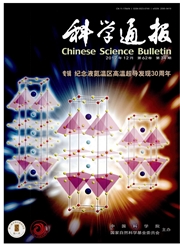

 中文摘要:
中文摘要:
The contents and distributions of metal elements in the brain are closely related to neurodegenerative diseases.In this study, we examined Fe, Cu and Zn contents in the brain section associated with Parkinson‘s disease(PD)using synchrotron radiation X-ray fluorescence(SRXRF). PD mouse model induced by 1-methyl-4-phenyl-1,2,3,6-terahydropyridine(MPTP) was used for the elemental analysis(e.g., Fe, Cu and Zn) in the substantia nigra pars compacta(SNpc) region of mice brain tissue samples. We found that mice in the MPTP group had higher contents of Fe, Cu and Zn in the SNpc than the control group. After treating the PD mice with rapamycin, the contents of Fe, Cu and Zn were reduced, the dopamine neurons and motor function were rescued correspondingly. The results prompted that the SRXRF provided an ideal method for tracing and analyzing the metal elements in the brain section to assess the pathological changes of PD model and the therapeutic effect of drugs.
 英文摘要:
英文摘要:
The contents and distributions of metal elements in the brain are closely related to neurodegenerative diseases.In this study, we examined Fe, Cu and Zn contents in the brain section associated with Parkinson‘s disease(PD)using synchrotron radiation X-ray fluorescence(SRXRF). PD mouse model induced by 1-methyl-4-phenyl-1,2,3,6-terahydropyridine(MPTP) was used for the elemental analysis(e.g., Fe, Cu and Zn) in the substantia nigra pars compacta(SNpc) region of mice brain tissue samples. We found that mice in the MPTP group had higher contents of Fe, Cu and Zn in the SNpc than the control group. After treating the PD mice with rapamycin, the contents of Fe, Cu and Zn were reduced, the dopamine neurons and motor function were rescued correspondingly. The results prompted that the SRXRF provided an ideal method for tracing and analyzing the metal elements in the brain section to assess the pathological changes of PD model and the therapeutic effect of drugs.
 同期刊论文项目
同期刊论文项目
 同项目期刊论文
同项目期刊论文
 Synchrotron radiation X - ray fluorescence analysis of biodistribution and pulmonary toxicity of nan
Synchrotron radiation X - ray fluorescence analysis of biodistribution and pulmonary toxicity of nan Signal-to-noise ratio analysis of X-ray grating interferometry with thereverse projection extraction
Signal-to-noise ratio analysis of X-ray grating interferometry with thereverse projection extraction Colorimetric detection of quaternary ammonium surfactants using citrate-stabilized gold nanoparticle
Colorimetric detection of quaternary ammonium surfactants using citrate-stabilized gold nanoparticle Rapid visual detection of quaternary ammonium surfactants using citrate-capped AgNPs based on hydrop
Rapid visual detection of quaternary ammonium surfactants using citrate-capped AgNPs based on hydrop Signal-to-noise ratio analysis of X-ray grating interferometry with the reverse projection extractio
Signal-to-noise ratio analysis of X-ray grating interferometry with the reverse projection extractio Synchrotron radiation X-ray fluorescence analysis of biodistribution and pulmonary toxicity of nanos
Synchrotron radiation X-ray fluorescence analysis of biodistribution and pulmonary toxicity of nanos Sol-gel design strategy for embedded Na3V2(PO4)(3) particles into carbon matrices for high-performan
Sol-gel design strategy for embedded Na3V2(PO4)(3) particles into carbon matrices for high-performan 期刊信息
期刊信息
